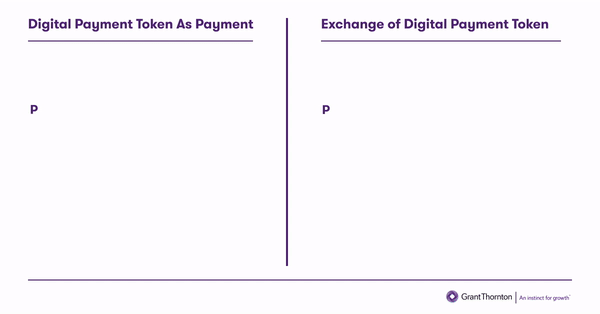-
Accounting Advisory
Our accounting advisory team help businesses meet their complex financial reporting requirements. The team can support in applying new financial reporting standards, IFRS/ US GAAP conversions, financial statement preparation, consolidation and more.
-
Payroll
Our team can handle your payroll processing needs to help you reduce cost and saves time so that you can focus on your core competencies
-
Managed accounting and bookkeeping
Outsourcing the financial reporting function is a growing trend among middle market and startup companies, as it provides a cost-effective way to improve the finance and accounting function. Our team can help with financial statement preparation, consolidation and technical on-call advisory.
-
Accounting Advisory
Our team helps companies keep up with changes to international and domestic financial reporting standards so that they have the right accounting policies and operating models to prevent unexpected surprises.
-
Crypto Accounting Advisory Service
Our team can help you explore appropriate accounting treatment for accounting for holdings in cryptocurrencies, issuance of cryptocurrencies and other crypto/blockchain related accounting issues.
-
ESG Reporting and Accounting
As part of our ESG and Sustainability Services, our team will work with you on various aspects of ESG accounting and ESG reporting so that your business can be pursue a sustainable future.
-
Expected Credit Loss
Our team of ECL modelling specialists combine help clients implement provisioning methodology and processes which are right for them.
-
Finance Transformation
Our Finance Transformation services are designed to challenge the status quo and enable your finance team to play a more strategic role in the organisation.
-
Managed Accounting and Bookkeeping Services
Outsourcing the financial reporting function is a growing trend among middle market and startup companies, as it provides a cost-effective way to improve the finance and accounting function. Our team can help with financial statement preparation, consolidation and technical on-call advisory.
-
Business Tax Advisory
Our business tax team can help you navigate the international tax landscape, grow through mergers and acquisitions, or plan an exit strategy.
-
Corporate Finance
Our corporate finance team helps companies with capital raising, mergers and acquisitions, private equity, strategic joint ventures, special situations and more.
-
Financial Due Diligence
From exploring the strategic options available to businesses and shareholders through to advising and project managing the chosen solution, our team provide a truly integrated offering
-
Valuations
Our valuation specialists blend technical expertise with a pragmatic outlook to deliver support in financial reporting, transactions, restructuring, and disputes.

-
Sustainability with the ARC framework
Backed by the CTC Grant, businesses can tap on the ARC Framework to gain access to sustainability internally, transform business processes, redefine job roles for workers, and enhance productivity. Companies can leverage this grant to drive workforce and enterprise transformation.

-
Business Tax Advisory
Our business tax team can help you navigate the international tax landscape, grow through mergers and acquisitions, or plan an exit strategy.
-
Corporate Tax Compliance
Our corporate tax teams prepare corporate tax files and ruling requests, support you with deferrals, accounting procedures and realise tax benefits.
-
Tax Governance
Our Tax Governance Services are designed to assist organisations in establishing effective tax governance practices, enabling them to navigate the intricate tax environment with confidence.
-
Goods and Services Tax
Our GST team supports organisations throughout the entire business life-cycle. We can help with GST registration, compliance, risk management, scheme renewals, transaction advisory and more.
-
Transfer Pricing
Our Transfer Pricing team advises clients on their transfer pricing matters on and end-to-end basis right from the designing of policies, to assistance with annual compliance and assistance with defense against the claims of competing tax authorities.
-
Employer Solutions
Our Employer Solutions team helps businesses remain compliant in Singapore as well as globally as a result of their employees' movements. From running local payroll, to implementing a global equity reward scheme or even advising on the structure of employees’ cross-border travel.
-
Private Client Services
Our private client services team provides a comprehensive cross section of advisory services to high net worth individuals and corporate executives, allowing such individuals to concentrate on their business interests.
-
Welfare and benefits
We believe that a thriving team is one where each individual feels valued, fulfilled, and empowered to achieve their best. Our welfare and benefits aim to care for your wellbeing both professionally and personally.
-
Career development
We want to help our people learn and grow in the right direction. We seek to provide each individual with the right opportunities and support to enable them to achieve their best.
The Ministry of Finance recently released the draft Goods and Services Tax (Amendment) Bill 2019 for public consultation which included a proposed amendment to the GST treatment of digital payment tokens. Around the same time, the Inland Revenue Authority of Singapore (“IRAS”) released a draft “e-Tax Guide” outlining the proposed changes on the GST treatment of digital Payment Tokens, which closed for comments on 26 July 2019.
The changes are aimed at trying to align the GST treatment with the growing consensus of indirect tax treatments in other jurisdictions such as Australia, the European Union, Japan and Switzerland ensuring there is no competitive disadvantage for businesses trading in Singapore.
What are Digital Payment Tokens?
“A digital payment token refers to any cryptographically-secured digital representation of value that can be transferred, stored or traded electronically”
Under the draft legislation, a digital payment token must have the following characteristics:
- It is expressed as a unit
- It is fungible
- It is not denominated in, or pegged, to any currency
- It can be transferred, stored or traded electronically
- It is intended to be a medium of exchange accepted by the public, or a section of the public, without any substantial restrictions on its uses as consideration
The IRAS’ draft e-tax guide gives examples of digital payment tokens which include Bitcoin, Ethereum, Litecoin, Dash, Monero, Ripple and Zcash.
What are the proposed changes and their implications?
Under current rules, the supply of virtual currencies and the use of virtual currencies to pay for goods and services are treated as taxable supplies of services. This would generally give rise to double taxation issues.
The proposed changes which are to take effect from 1 January 2020 are two-fold and are summarised as follows:
- Use of digital currency as a payment for goods/services is not a supply for GST purposes
This should positively impact businesses using digital payment tokens to pay for goods or services because they will no longer be required to account for output tax on the value of the digital payment tokens transferred. The transfer can simply be disregarded for GST purposes.
- Exchange of digital currency for a “fiat” currency or any digital token is exempt from GST
The implications of this change are more complex and far reaching. They include, but are not limited to the following:
- The issue of digital payment tokens (e.g. initial coin offerings) will be exempt from GST (potentially zero-rated if the issue is to overseas customers.) Such businesses will not be entitled to register for GST in Singapore and thus all input tax incurred on costs will be irrecoverable, increasing their cost base. While the draft e-tax guide is silent on the liability for GST registration if the issue is to overseas customers or made on an overseas exchange, which would be zero-rated supplies, we assume the normal rules for voluntary registration would apply to allow the GST registration, where appropriate.
- Businesses who exchange digital payment tokens are likely to become partially exempt (make a mixture of exempt and taxable supplies.) Input tax incurred on exempt supplies is not recoverable and such businesses will need to attribute and apportion input tax incurred on costs, again increasing their cost base.
Example: Post 1 Jan 2020 Exchange of Digital Payment Token



For more information, contact our expert Jeremy O'Neill.


